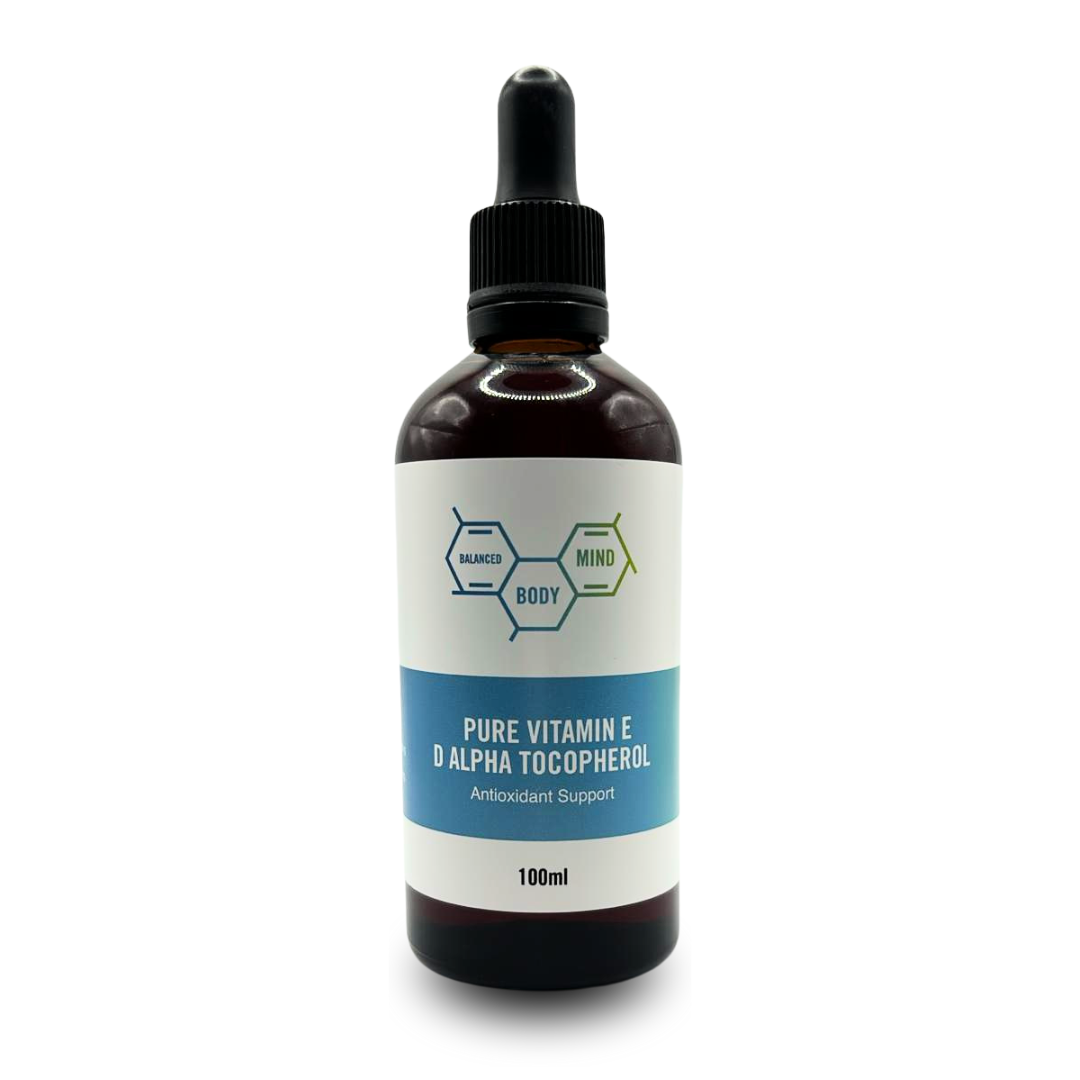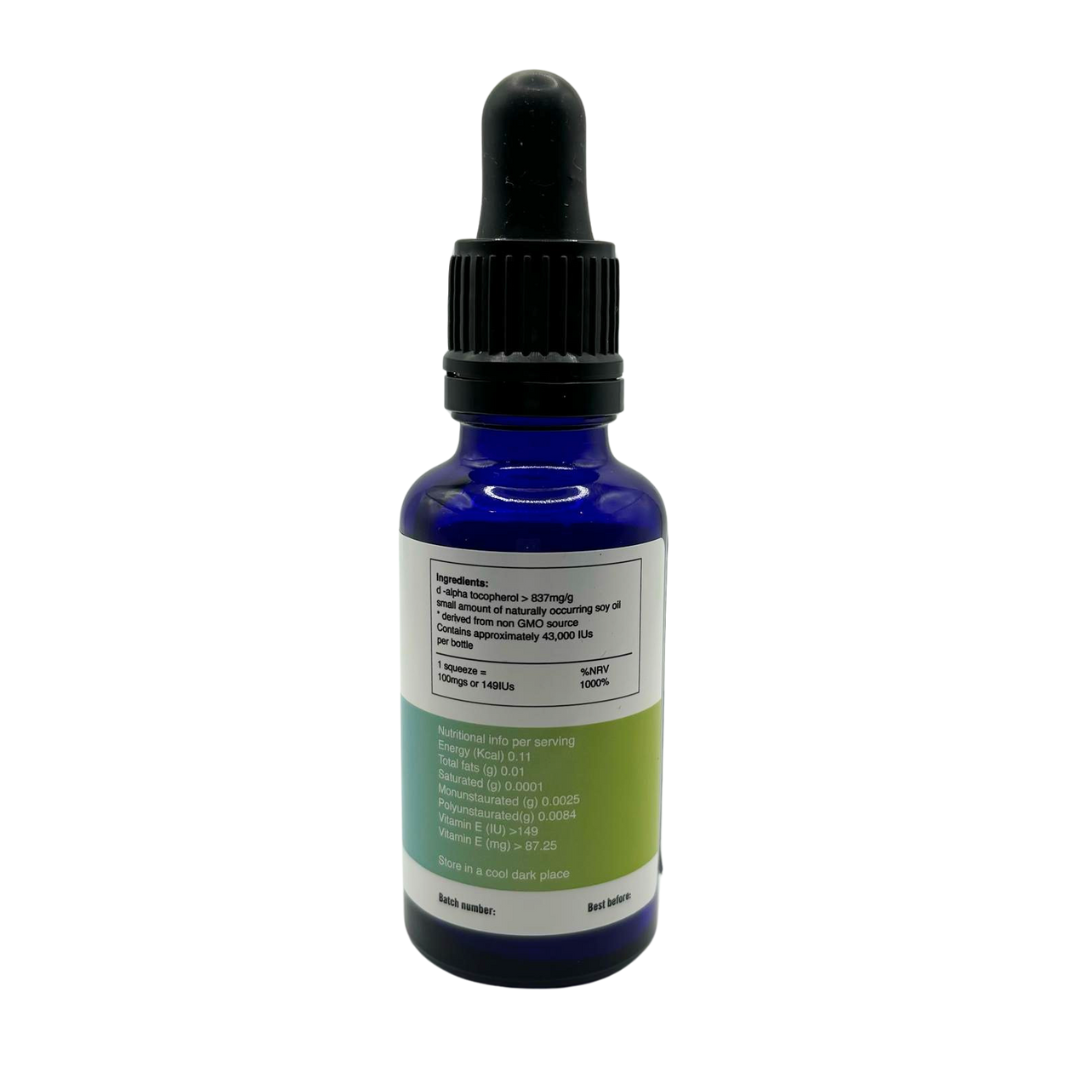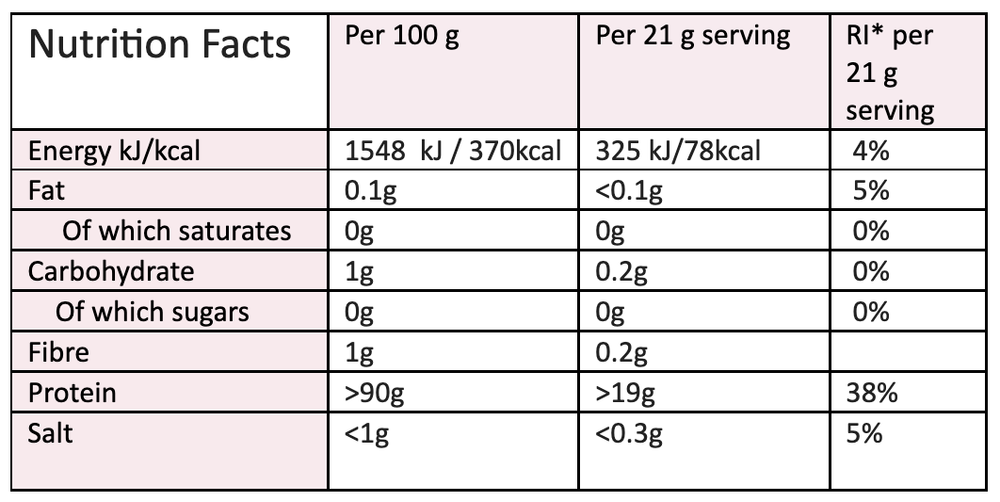Vitamin D3 and K2 Oil 100ml
Vitamin D is actually a hormone. It enables the absorption of Calcium and Phosphorus from the intestines and regulates gene expression in over 2000 genes of our 30,000 genes.
Vitamin D3 is naturally produced in humans in the skin when UVB light hits the skin and converts cholesterol to previtamin D, which is then converted to D3 (cholecalciferol) in the liver.
It is estimated that 20 minutes of sun exposure produce 20,000 IU of Vitamin D3 and we know there are Vitamin D3 receptors in most cells in the body.
Vitamin D is actually a hormone. It enables the absorption of Calcium and Phosphorus from the intestines and regulates gene expression in over 2000 genes of our 30,000 genes.
Vitamin D3 is naturally produced in humans in the skin when UVB light hits the skin and converts cholesterol to previtamin D, which is then converted to D3 (cholecalciferol) in the liver.
It is estimated that 20 minutes of sun exposure produce 20,000 IU of Vitamin D3 and we know there are Vitamin D3 receptors in most cells in the body.
Vitamin D is actually a hormone. It enables the absorption of Calcium and Phosphorus from the intestines and regulates gene expression in over 2000 genes of our 30,000 genes.
Vitamin D3 is naturally produced in humans in the skin when UVB light hits the skin and converts cholesterol to previtamin D, which is then converted to D3 (cholecalciferol) in the liver.
It is estimated that 20 minutes of sun exposure produce 20,000 IU of Vitamin D3 and we know there are Vitamin D3 receptors in most cells in the body.
Vitamin D is important for:
Maintaining healthy bones and teeth.
Absorbing calcium and phosphorus, all important in bone health.
Supporting normal cell division.
Helping to keep the immune system functioning normally, including the inflammatory response to wounds and infection
Normal muscle activity.
There are a number of important factors that affect our body's Vitamin D production, these include:
Latitude - The further north that you live, the less intense the UV exposure as the suns rays have further to travel as the sun is lower. If you live above 35 degrees latitude you will not be able to make Vitamin D from the sun from November - March.
Season - the season of the year affects the angle that the suns rays hit the earth, and that angle affects how much UVB gets to the skin. This depends where you live in the world. Generally at the end of the summer peoples Vitamin D levels are greater than at the end of the winter. Vitamin D producing days are less the further North you go.
Altitude - The higher the altitude the more Vitamin D you can make from exposure to UVB rays. At lower altitudes the atmosphere absorbs the suns rays.
Time of Day - When the sun is directly overhead the greater the exposure to UVB there is.
Air Pollution - Pollution can block UVB rays.
Cloud cover - UVB light is 50% less under cloud cover.
Sunscreen- The higher the SPF factor the less exposure to UVB. An SPF 8 prevents 92% production of Vitamin D in the skin and an SPF 15 reduces it by 99%.
Melanin content of the skin. Skin types are classified 1-6. Type 1 is fair skinned and always burns, while Type 6 is dark skinned and never burns. However dark skinned people require up to 10x the amount of sun as light skinned people. It is harder for the sun to penetrate the skin and manufacture Vitamin D.
Age - Older people need more sun exposure to make Vitamin D. As we age we produce less Vitamin D precursor and therefore less Vitamin D. An elderly person will produce 75% less than a young person when exposed for the same length of time, and elderly people tend to spend less time in the sun.
Weight - The fatter you are the less Vitamin D you will have available, as the fat cells store it, making less available for tissues and organs
lothing cover - The greater the skin covering with clothing, the less exposure to UVB.
A statement from the Department of Health specifically says:
“We are aware that some of the UK population may be at risk of Vitamin D deficiency. This is a concern, particularly for at-risk groups, such as pregnant women, infants and young children”
Last year the Chief Medical Officers in England, Scotland, Wales and Northern Ireland, wrote to healthcare professionals to increase awareness of this important issue, and recommended the use of Vitamin D supplements for at-risk groups.To support these recommendations the Department of Health has issued new guidance for Vitamin D supplements which has been outlined below:
Children 6 months-5 years: 7-8.5mcg
Pregnant and breast-feeding: 10mcg
65 years +: 10mcg
People not exposed to too much sun: 10mcg.Please note this product is not suitable for vegans.
We have recently changed this formulation to include avocado oil instead of sunflower oil. Avocado Oil is the natural oil pressed from the pulp of an avocado. It is rich in Oleic acid (Omega 9), a monounsaturated fatty acid (similar to Olive Oil). Whilst it has a ratio of Omega 6 to Omega 3 of approximately 13:1, the Omega 6 content is relatively low. Sunflower Oil has a much higher Omega 6 content and, whilst the body needs Omega 6, it is pro-inflammatory.
This product is suitable for vegetarians.
DIRECTIONS / DOSAGE
Recommended dose 10 drops per day with food. The stated recommended dose can be changed as directed by your healthcare practitioner. Do not exceed this recommended dose. Consume within 3 months of opening.
SUITABLE FOR
Vegetarian
No Gluten Containing Ingredients
No Nut Containing Ingredients
STORAGE
Store in a cool, dry place out of reach of children.
PRODUCT TYPE
1 serving = 10 drops | 294 servings











